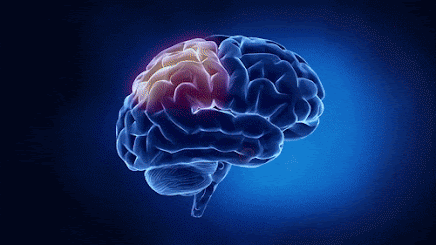Desventaja 4. Menor capacidad de pensamiento
El cerebro es, como cualquier sistema de procesamiento de información, un dispositivo con capacidades limitadas, sobre todo en la de procesar una cantidad de información por unidad de tiempo en el presente. Así, nuestro cerebro tiene dos cuellos de botella: uno es la atención (cuando tenemos dos fuentes de información suficientemente complejas, la eficiencia de una decae como consecuencia de la otra); y la otra, la llamada “memoria de trabajo” (el espacio mental en que retenemos la información hasta hacer algo con ella). Esta memoria tiene una capacidad finita en los seres humanos y es extremadamente susceptible a las interferencias. Cuando se intenta llevar a cabo dos tareas demandantes al mismo tiempo, la información se cruza y se producen muchos errores. En un estudio realizado en la Universidad de California en Los Ángeles (UCLA), se les mostraron a estudiantes unas tarjetas con símbolos y se les pidió que hicieran predicciones basándose en patrones que habían reconocido previamente. La mitad tenían que realizar esto en un ambiente de multitarea, mientras escuchaban altos y bajos tonos y tenían que contar las señales acústicas elevadas. Sorprendentemente, ambos grupos fueron igual de competentes. Pero cuando empezaron a hacer preguntas más abstractas sobre esos patrones, el costo cognitivo de las multitareas fue evidente. Desde el punto de vista del funcionamiento cerebral, estamos capacitados para realizar muchas tareas, por supuesto, pero debemos focalizarnos en hacer una de estas por vez. Tener muchas cosas para hacer y hacerlas una por vez (que es lo recomendable) no es lo mismo que intentar hacer varias cosas al mismo tiempo. La multitarea tiene un costo
The brain is, like any information processing system, a device with limited capabilities, especially in processing an amount of information per unit of time in the present. Thus, our brain has two bottlenecks: one is attention (when we have two sufficiently complex sources of information, the efficiency of one declines as a consequence of the other); and the other, the so-called “working memory” (the mental space in which we retain information until we do something with it). This memory has a finite capacity in humans and is extremely susceptible to interference. When trying to carry out two demanding tasks at the same time, information gets mixed up and many errors occur. In a study conducted at the University of California, Los Angeles (UCLA), students were shown cards with symbols and asked them to make predictions based on patterns they had previously recognized. Half had to do this in a multitasking environment, while listening to high and low tones and counting the high beeps. Surprisingly, both groups were equally competent. But when they started asking more abstract questions about those patterns, the cognitive cost of multitasking became apparent. From the point of view of brain function, we are trained to perform many tasks, of course, but we must focus on doing one of these at a time. Having many things to do and doing them one at a time (which is recommended) is not the same as trying to do several things at the same time. Multitasking has a cognitive cost.

Comentarios
Publicar un comentario